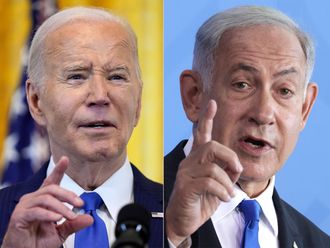Ramallah: Palestinians have reacted angrily to an Israeli draft bill that bans mosques from using loudspeakers for the call to prayer at night in Occupied Jerusalem and 1948 areas.
A new version of the Muezzin bill approved on Sunday prohibits the use of loudspeakers for religious purposes from 11 p.m. to 7 a.m., Xinhua news agency reported.
Palestinian President Mahmoud Abbas condemned the bill, saying it “would drag the area to disaster”.
Abbas called for an immediate Arab and Muslim move to pressure Israel to annul the bill, according to a Palestinian National Authority (PNA) statement.
Palestinian Minister of Waqf and Religious Affairs Yousuf Edais said the bill was an attempt to make the Israeli-Palestinian conflict a religious one.
“It expresses racism that goes beyond politics and delves into religion,” Idais said.
The bill “is pushing the entire region into a religious war”, he warned.
In Israeli and the Palestinian territories, there are hundreds of mosques where the call to prayer takes place five times a day -- the first of which happens at dawn.
The bill was sponsored by two members of the Israeli parliament, or Knesset, representing the right-wing parties of Habayit Hayehudi and Likud, saying the calls to prayer early morning disturb the sleep of hundreds of thousands of Jews.
Israeli Prime Minister Benjamin Netanyahu approved the bill, saying people “of all religions have complained countless times about noise from the muezzin”.
PNA spokesman Yousuf Al Mahmoud said the bill “was a violation of freedom to worship in Occupied Jerusalem”.
“It is unbelievable the long religious and cultural history of the city is being destroyed with the stroke of a pen,” Al Mahmoud said.
“The holy city in particular and Palestine in general had a history of respect and harmony between all residents regardless of their religious beliefs,” the spokesman said.
Mahmoud Al Habbash, an advisor to Abbas on religious affairs, said the bill clearly shows that Israel is going ahead with its aggression on the Palestinian people and keeps challenging the world’s will and the international law which allows free worshipping.
According to Israeli Radio, if the bill becomes law, it would apply to mosques in occupied east Jerusalem as well as Israel, but not to Al Haram Al Sharif, Islam’s third holiest site in the old city.
Critics of the bill have argued the draft legislation was superfluous given existing noise regulations, and therefore could be construed as an attack specifically targeting the Muslim right to worship.
The current version of the “Muezzin bill” -- referring to the men responsible for the call to prayer -- only affects the call for Fajr (dawn) prayer.











